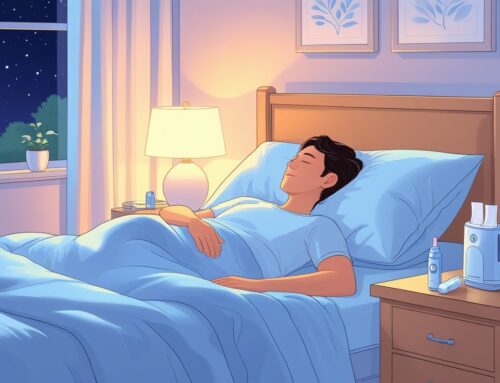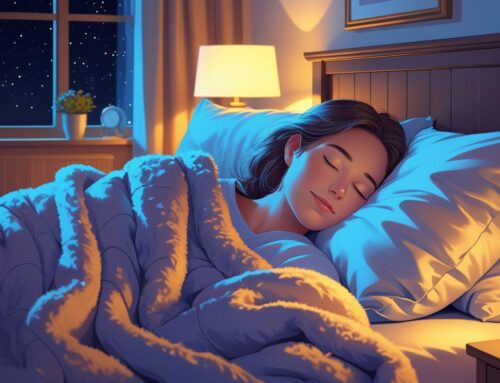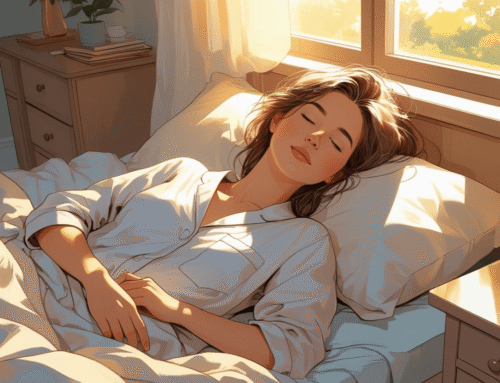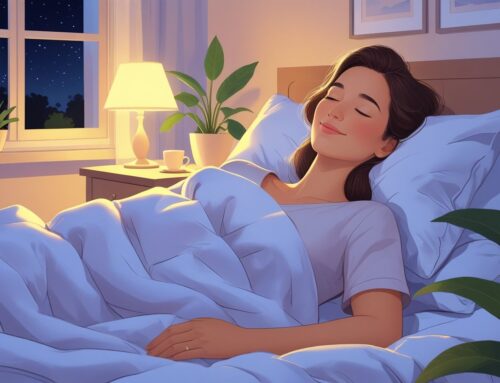Rest and sleep aren’t the same, even though people often treat them like they are. Sleep is when your body repairs itself and your brain organizes memories. Rest is any moment you pause or relax, like sitting quietly, stretching, or closing your eyes without drifting off. Both are good for you, but rest alone can’t replace sleep.
A lot of people think a quick break is enough to recharge. But without enough sleep, your body and brain never fully reset. That’s why you might still feel drained even after resting. Knowing the difference helps you figure out what your body actually needs.
Balancing both rest and sleep is key. Sleep gives you recovery at a deeper level, while rest helps you manage stress and stay steady during the day. Making small changes to your routine, like setting aside quiet time before bed or keeping a regular sleep schedule, can make a big difference. Over time, you’ll notice more focus, better moods, and stronger health.
Key Takeaways
- Rest and sleep are both different but complementary roles in recovery.
- Sleep is needed for full physical and mental restoration.
- Balancing rest and sleep boosts health and energy.
- A supportive mattress helps both rest and sleep by keeping your body aligned, reducing pressure points, and helping you wake up refreshed.
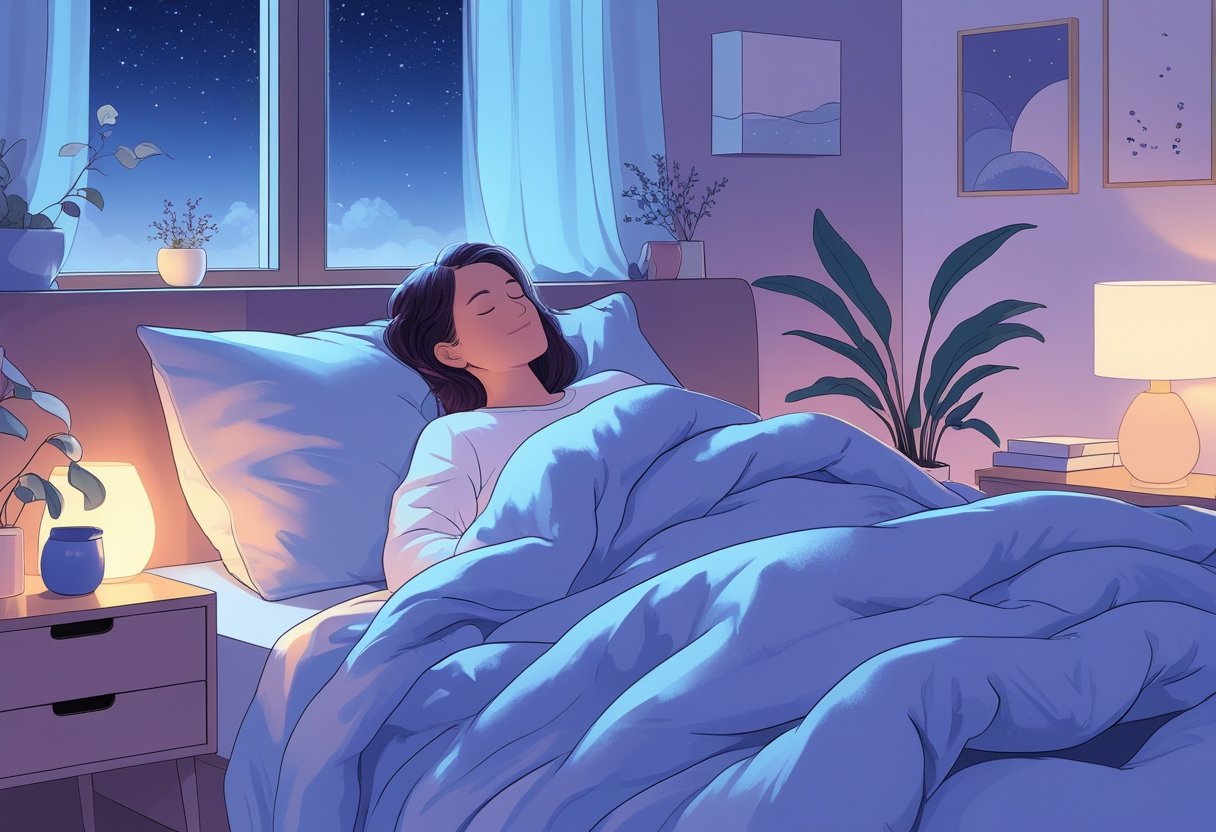
Defining Rest and Sleep
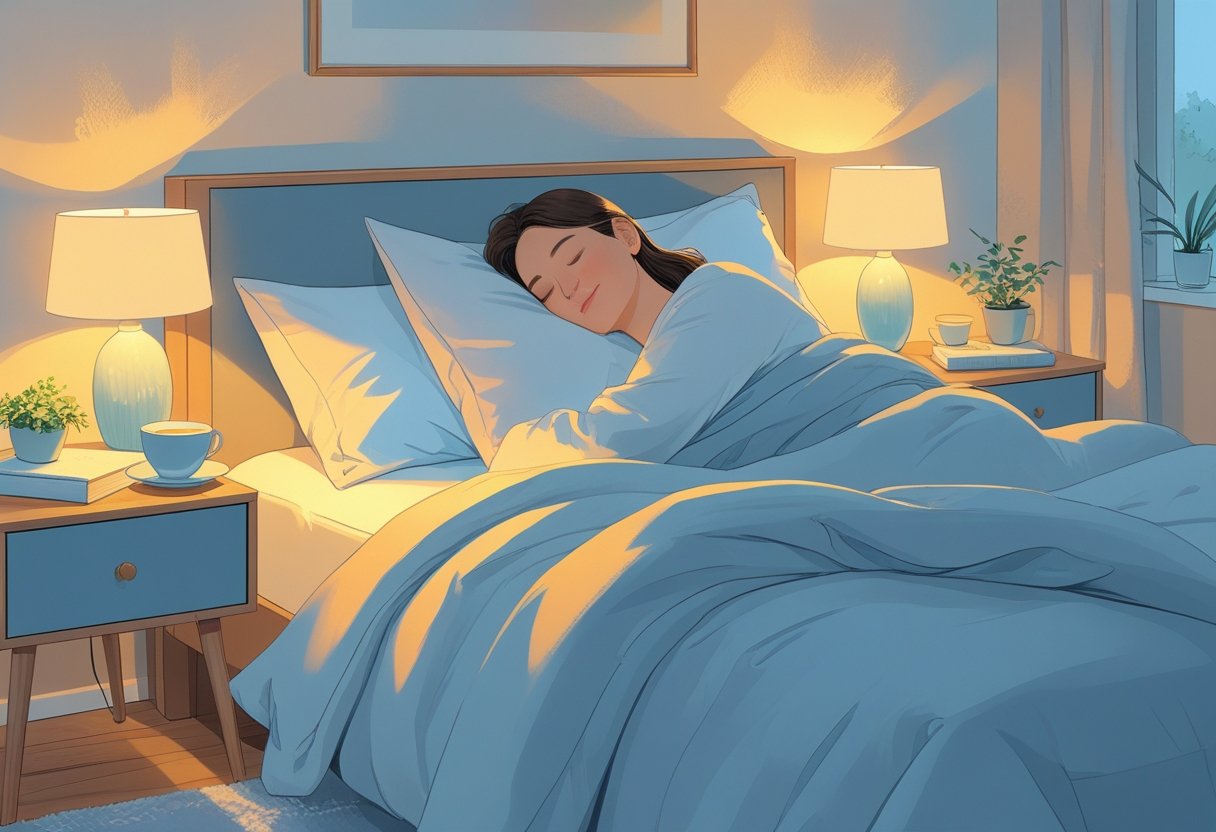
Rest and sleep are both important for the body and mind. They help you recover, but they work in different ways. Each has its own role in keeping you healthy.
Sleep
Sleep is when your body fully shuts down for rest. Your brain works in different stages, like light sleep, deep sleep, and REM. While you sleep, a lot happens behind the scenes. Your body repairs tissue, balances hormones, and builds memory. Sleep is different from just lying down because it disconnects you from your surroundings and gives your body a deeper kind of reset.
Rest
Rest is when you slow down without going to sleep. You’re still awake, but you take the pressure off your body and mind. Rest can be as simple as sitting quietly, stretching, meditating, or pausing during work. It lowers stress and saves energy, but it doesn’t bring the same brain activity that sleep does. Rest helps you feel calmer and more alert, but it can’t replace real sleep.
Rest vs. Sleep
- Consciousness
- Rest: awake and aware
- Sleep: unconscious or altered awareness
Brain Activity
- Rest: similar to waking, relaxed
- Sleep: changes through sleep stages
Duration
- Rest: minutes to hours
- Sleep: usually several continuous hours
Physical Repair
- Rest: limited hormone changes
- Sleep: high levels of tissue repair
Mental Benefits
- Rest: lowers stress, improves focus
- Sleep: supports memory and emotional regulation
Both rest and sleep matter. Rest gives short-term recovery, while sleep is needed for full repair of the body and brain. Knowing the difference helps you take better care of yourself every day.
Key Differences Between Rest and Sleep
Both rest and sleep help your body recover, but they work in different ways. Rest is when you slow down and relax while staying awake. Sleep is a deeper state where your body and mind repair themselves without you being aware of it. Knowing the difference can help you take better care of yourself each day.
How the Body Reacts
When you rest, you’re calm, but your brain is still awake and alert. You notice what’s happening around you. Your body slows down, but it doesn’t enter the deeper changes that happen during sleep.
Sleep is more complex. Your brain waves shift, and you move through stages like REM and NREM. These cycles repair tissue, balance hormones, and strengthen memory. Growth hormones kick in, while stress hormones settle. Rest lowers stress too, but it doesn’t reach this deeper level.
Mental and Physical Recharge
Rest is like a quick pause button. It eases tension, helps you refocus, and gives your body a short break. But it doesn’t heal muscles or boost immunity the way sleep does.
Sleep goes further. During REM, your brain processes emotions and memories. NREM helps your muscles recover and supports your immune system. Because you’re fully unconscious, your body can work on repairs without distraction. Rest can keep you sharp through the day, but regular sleep is what protects your long-term mental health and prevents problems linked to sleep loss.
How It Plays Out in Daily Life
It’s easy to confuse the two. Closing your eyes for a few minutes is rest, not sleep. Rest is useful for short breaks, like meditating or sitting quietly.
Sleep, though, requires longer, steady periods. Naps can help, but they can’t replace a full night’s rest. The best approach is a mix: short rests during the day and consistent sleep at night. Paying attention to what your body needs, whether it’s a pause or true sleep, can make a big difference in how you feel and function.
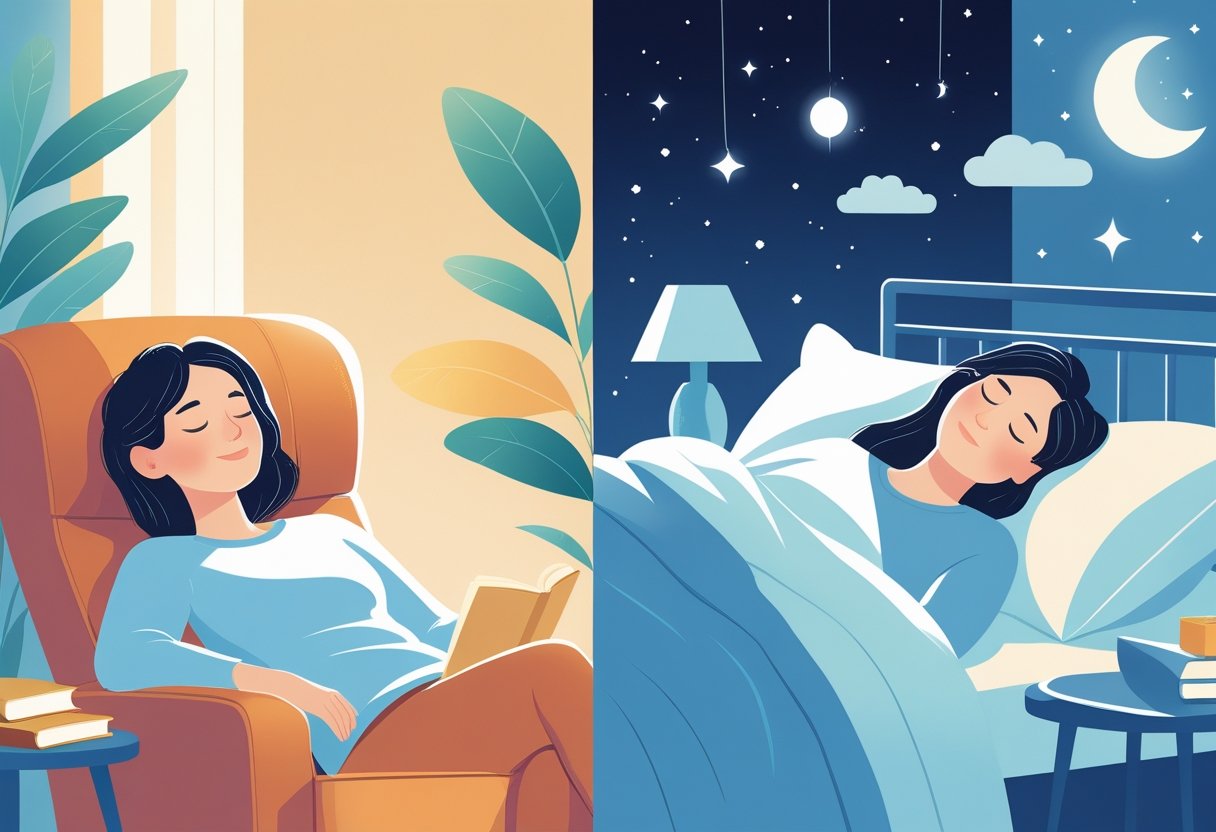
When Rest Is Not a Substitute for Sleep
Rest and sleep affect the body in different ways. Rest is about being calm and slowing down. Sleep, on the other hand, causes real changes in the brain and body. Knowing the difference matters because resting alone isn’t enough for full recovery.
Does Rest Mean Sleep?
Rest doesn’t mean sleep. When you rest, you’re awake but relaxed. You might sit quietly, meditate, or close your eyes and stay aware. Sleep is different. It’s an unconscious state with changes in brain waves and body functions. Rest can calm your mind and reduce stress, but it doesn’t trigger the cycles of sleep that help the body heal and process information.
Is Resting as Good as Sleeping?
Resting is helpful, but it’s not the same as sleeping. Yes, it can reduce fatigue and tension and improve focus during a busy day. But it doesn’t repair tissues, balance hormones, or strengthen the immune system like sleep does. Sleep supports growth, emotional balance, and memory. Counting rest as sleep can make it easy to underestimate the real sleep your body needs.
Does Resting Count as Sleep?
Rest gives a break, but it can’t replace proper sleep. Sleep stages like REM and deep sleep are where the real recovery happens. Resting might make you feel refreshed, but only sleep fully restores the brain and body. Knowing this difference helps you take care of your health and get the recovery you actually need.
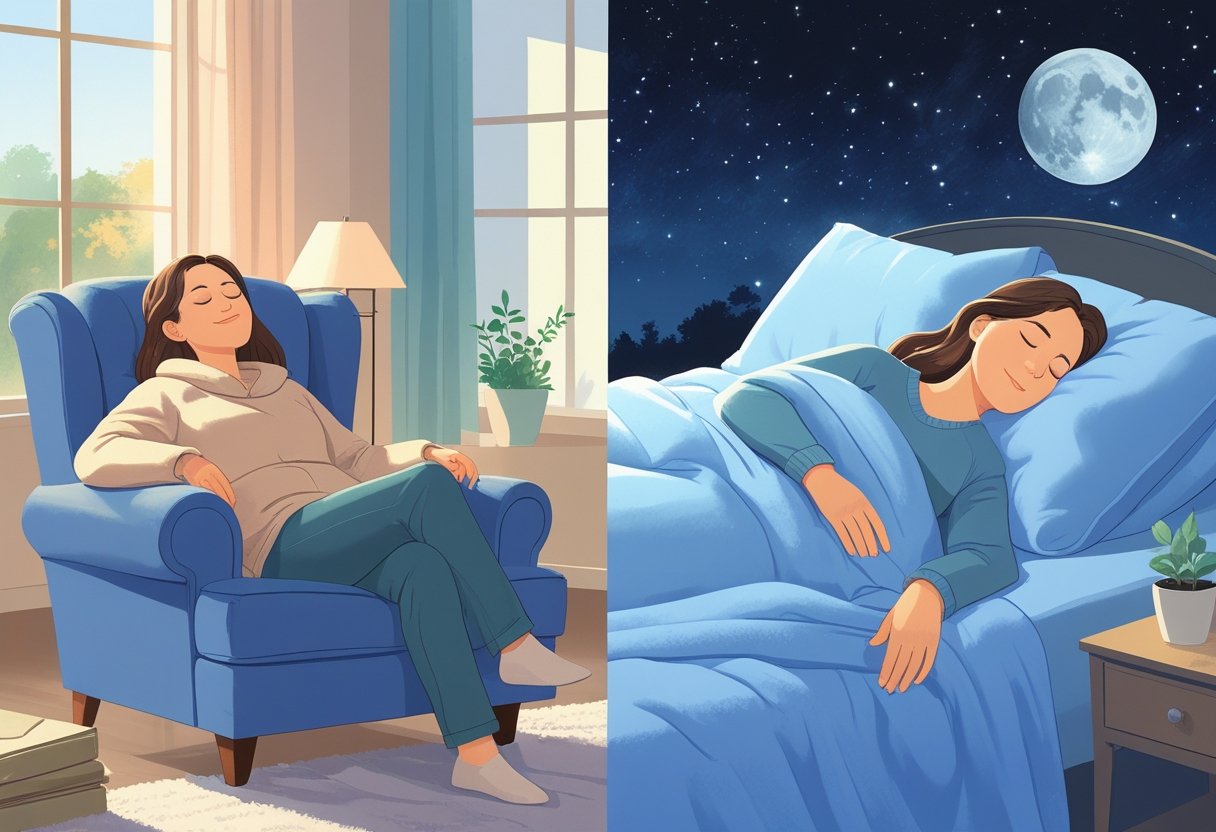
Optimizing Rest and Sleep in Your Routine
Getting better rest and sleep isn’t just about lying in bed longer. It comes from having steady habits, ways to relax, and balancing rest with actual sleep. These things help both your body and mind recover.
Improving Sleep Habits
Going to bed and waking up at the same time every day helps your body know when to sleep. This makes it easier to fall asleep and stay asleep.
Cutting screen time at least an hour before bed can help. Phones and computers give off blue light that messes with melatonin, the hormone that tells your body it’s time to sleep. A quiet, dark, and slightly cool room also makes resting easier. Avoid caffeine, heavy meals, and nicotine near bedtime. They can keep you awake or make sleep restless. A light snack that’s easy to digest is okay if you’re hungry before bed.
Techniques for Effective Rest
Doing calm activities before bed signals your body to slow down. Reading, gentle stretching, or deep breathing can all help you relax. Mindfulness or meditation lowers stress, which often interrupts sleep. Less stress makes it easier to fall asleep and stay asleep through the night.
Using your bedroom mostly for sleep also helps. The brain learns to associate the space with rest, so it’s easier to unwind and not stay alert when you lie down.
Balancing Rest and Sleep
Short naps of 20–30 minutes can help if scheduled earlier in the day. Drinking too much right before bed can cause bathroom trips and interrupt sleep. Regular exercise helps sleep, as long as it’s done a few hours before bedtime. It keeps your body on a healthy sleep-wake cycle and gives enough time to wind down.

Common Myths and Misconceptions
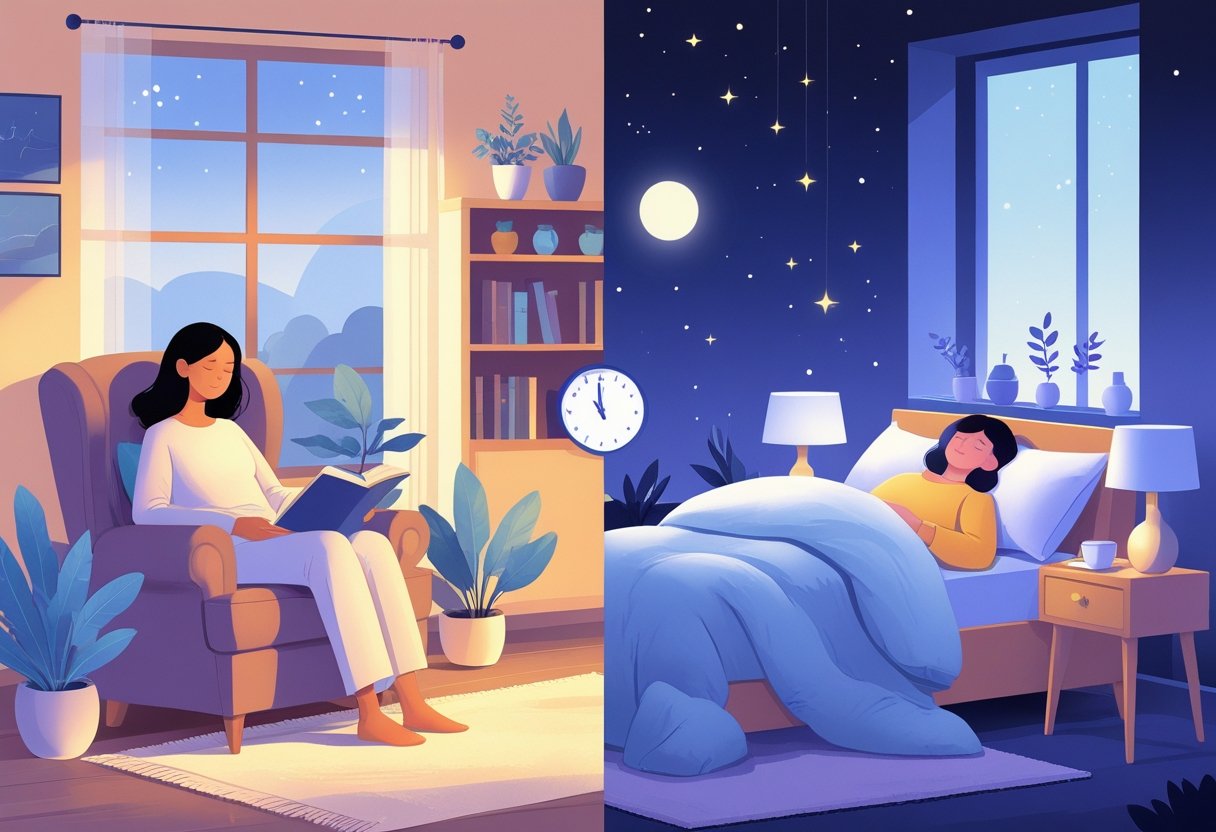
Rest and sleep are not the same, even though people often use the words interchangeably. Both help the body recover, but they do it in very different ways. Knowing the difference can help you make better choices for your health and energy.
Is Resting the Same as Sleeping?
Resting is simply taking a break from physical or mental activity. You might sit quietly, lie down, or meditate. Rest can help you feel less stressed and give your body a short pause, but it doesn’t provide the deep recovery that sleep does.
Sleeping vs Resting: Clarifying Beliefs
Sleep is more active than rest. Your body goes through stages like REM and deep sleep that help repair tissue, support memory, and restore energy. Without these cycles, your brain and body cannot fully recover.
Some people think resting is just as good as sleeping because it reduces tiredness. That’s not true. Sleep triggers processes that rest cannot, like hormone balance, immune support, and clearing waste from the brain. Resting can feel good and reduce stress, but it can’t replace sleep. Missing sleep but resting won’t stop problems like poor focus, slow reactions, or weakened immunity. Short breaks are useful, but real recovery comes from proper sleep.
Mattresses for Better Sleep and Refreshing Naps

The mattress you sleep on makes a big difference in how rested you feel. A supportive one takes pressure off your body and helps you stay cool through the night. Without that, even a long night’s sleep can leave you feeling tired. Hybrid mattresses are a popular choice because they combine foam with coils. The foam adds comfort while the coils give steady support. They also tend to last longer than all-foam beds and have stronger edges, which helps if you sit or sleep near the side.
When choosing a mattress, it helps to look for cooling materials so you don’t overheat, support zones that match your shoulders and hips, and medium firmness that works for most sleep styles. Motion isolation is also important if you share a bed and don’t want to feel every move your partner makes. For naps, softer top layers can make it easier to relax quickly.
The Leesa Sapira Hybrid Mattress is one option that balances comfort and support. It has a soft Euro pillow top for extra cushioning, plus a dual-coil system to keep the bed sturdy. It works well for different sleep positions and feels just as good for a quick nap as it does for a full night of sleep.
Frequently Asked Questions
Rest and sleep both help the body and mind work well. They support healing, thinking clearly, and staying emotionally balanced in connected ways.

